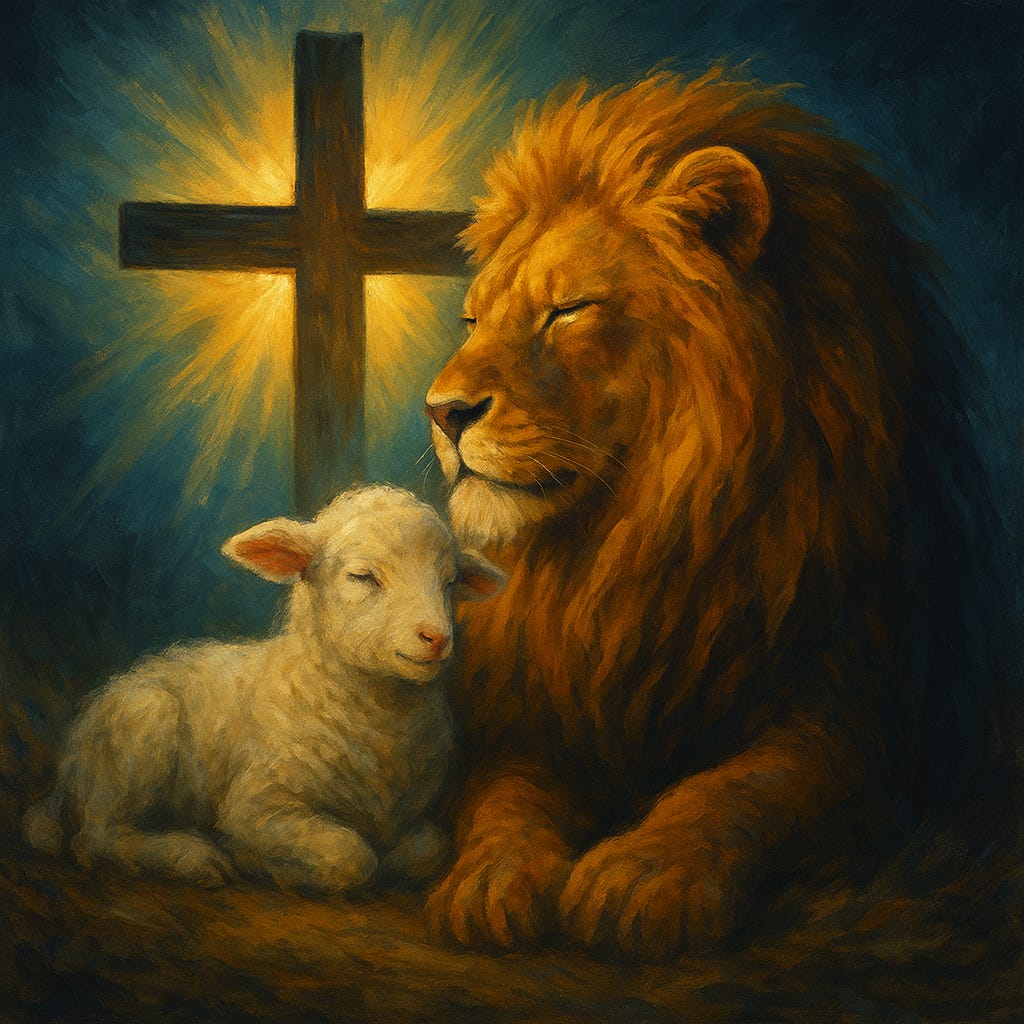The Power of an Indestructible Life
Reflection on Hebrews 7
The hope of Hebrews 7 is this: our salvation rests not in human lineage or fragile succession, but in “the power of an indestructible life” (Hebrews 7:16). Israel’s priests came from Levi. Under the Law, lineage mattered. But Jesus belonged to Judah, the tribe of kings, not priests. How could one from Judah serve as High Priest? Kings and priests had separate roles in Israel, and when those boundaries were crossed the results were disastrous. Saul learned this the hard way. When Samuel was delayed, Saul presumptuously offered the sacrifices himself before battle. His disobedience cost him the kingdom, and he stands as a warning of what happens when a king tries to seize priestly authority on his own terms.
The normal succession of kings and priests often followed ancestral lineage. Solomon reigned after David. Eli’s sons were expected to follow him. But sin sometimes disrupted the natural order. Because of Eli’s sons’ corruption, God raised up Samuel as priest. Saul’s lineage was rejected in favor of David, a man after God’s own heart from a humble and obscure family. These interruptions remind us that God’s purposes are not bound by human genealogy.
Jesus is the Lion of the Tribe of Judah—a symbol of strength and victory, the mighty defender of his people. And yet he is also our High Priest, the servant who intercedes for us in mercy. How can he be both? Hebrews points us back to Abraham, the peaceful patriarch who once took up sword and armor to rescue Lot from enemy hands.
This is where Melchizedek comes back into view. Unlike Saul, who was rebuked for crossing boundaries, Melchizedek was both king and priest, ruling Salem while also ministering before God. His designation is telling: king of Salem and priest of the Most High God. He stands alone in the Old Testament as the only figure to bear both titles without rebuke. Abraham himself recognized his superiority, paying tithes and receiving a blessing from his hand. By calling him “priest of the Most High God”—El Elyon—the Scriptures highlight a priesthood not tied to one nation, but to the God who reigns over all the earth. Melchizedek’s city, Salem, foreshadows Jerusalem, the city that would one day become the spiritual center of the world. And even that earthly city points higher still, to the heavenly place of intercession where Christ ministers for all mankind.
Jesus’ priesthood follows “the order of Melchizedek, rather than one named after the order of Aaron” (v. 11). Melchizedek predated the Levitical system, setting in place a model by which Jesus, likewise, would not require a familial link as a qualification for the priesthood. Though mystery surrounds Melchizedek, it is clear that his kingship and priesthood were divinely appointed—outside of any human system of government or religious order. In the same way, Jesus’ role as eternal High Priest is rooted not in lineage but in God Himself: “This is my beloved Son, with whom I am well pleased” (Matthew 3:17).
So too, Jesus entered enemy territory at Calvary. He fought the battle no one else could fight, and he won. Through his perfect, sinless life and his death on the cross, he claimed forever the title that no genealogy could confer: eternal High Priest, appointed by God through the power of an indestructible life.
Our salvation rests not in human lineage, ritual, or priestly order. The church cannot save us any more than the tabernacle, animal sacrifices, or the ceremonial rites and prayers of imperfect priests ever could. “For the law made nothing perfect; but… a better hope [Jesus] is introduced, through which we draw near to God” (Hebrews 7:19). The Lion of Judah has conquered, and as the priest of the Most High God “always lives to make intercession for [us]” (Hebrews 7:25). He alone has saved us and made us not only his heirs, his brothers and sisters, his family, but also a kingdom of priests serving under his headship as our sovereign King and eternal High Priest in heaven.
Paul taught that we are “a people for his own possession” (Titus 2:14), so there is never a moment when we stand alone before God. Jesus stands with us as our one and only mediator, and because of his sacrifice we can confidently approach the Father and his heavenly throne of grace. Just as Abraham rescued Lot from the enemy’s hand, Jesus pursued us to the cross. He snatched us from Satan’s grasp. He cleansed us from sin. He set us apart as his bride—a holy people, consecrated and transformed daily for his glory. We belong to him, and we will never be forsaken, forgotten, or ignored—kept forever by the power of an indestructible life.



